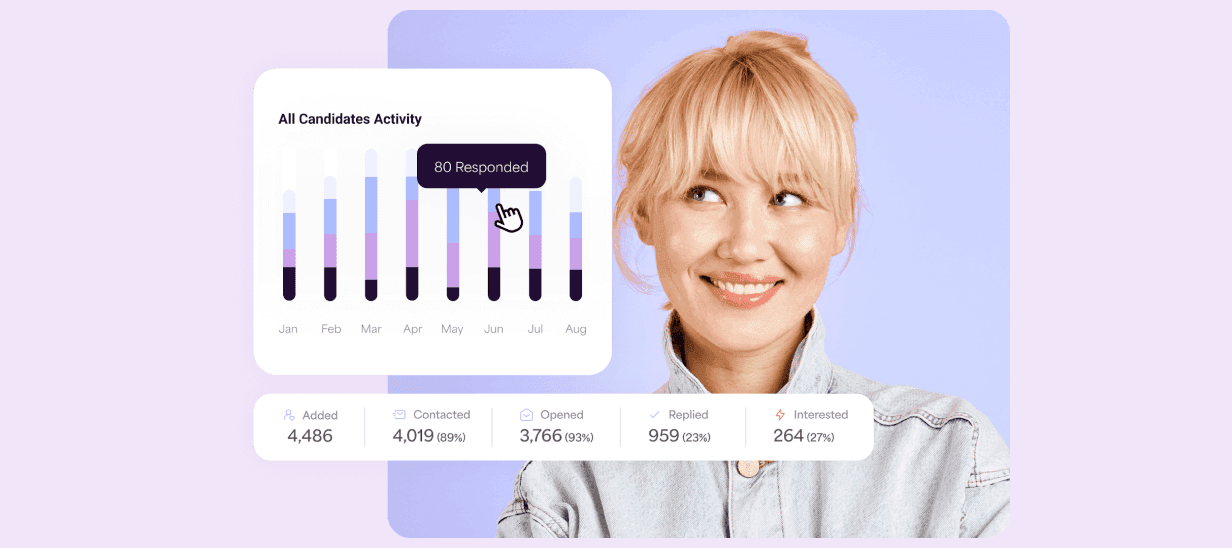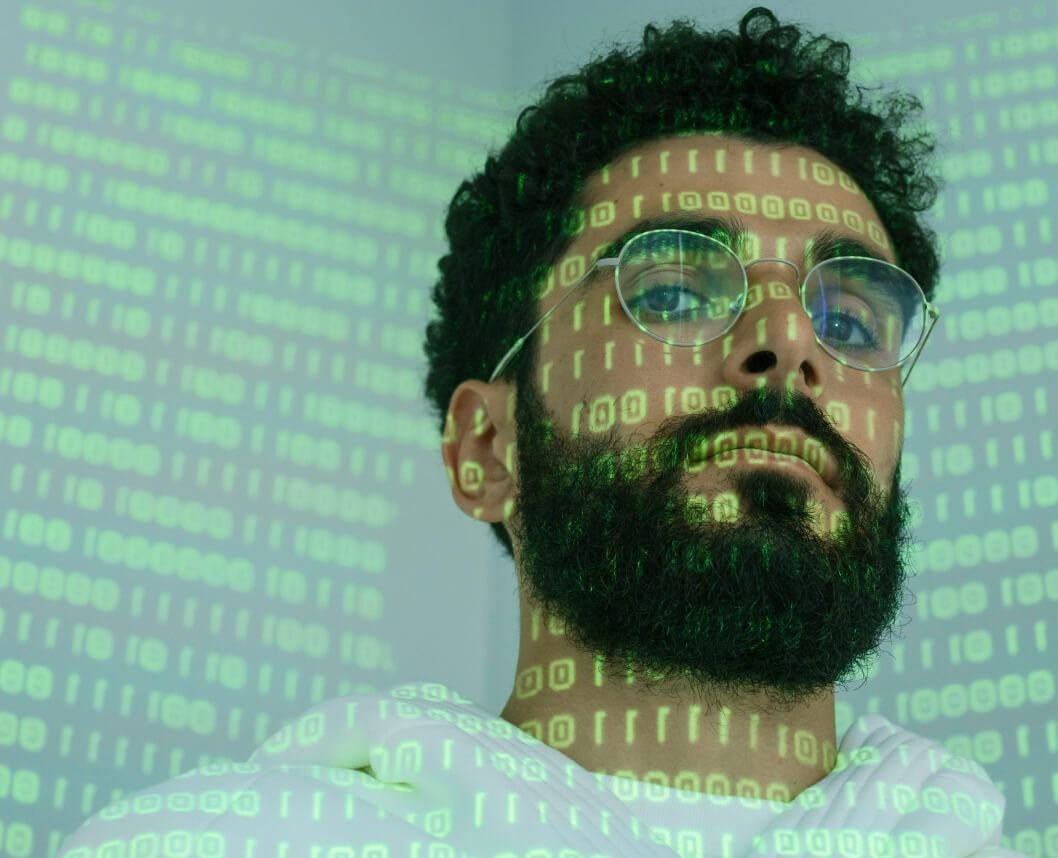In the rapidly evolving talent acquisition landscape, Artificial Intelligence (AI) has emerged as a game-changer for recruitment.
With AI's transformative capabilities, recruiting qualified candidates has become faster and more efficient than ever. However, while AI brings numerous benefits to the recruitment process, many potential drawbacks and concerns remain to be considered.
Let's examine the growing role of AI in recruitment and sourcing, uncovering both its benefits and potential issues for hiring professionals.

The Benefits of AI in Recruitment
1. It Saves Time and Money:
One of the most significant benefits of using AI in recruitment is the time and cost savings it provides. According to data from the Society for Human Resource Management (SHRM), many employers estimate the total cost to hire a new employee to be three to four times the position's salary. Another SHRM report also revealed that the average time to fill a position has ballooned to an average of six weeks, with many participants listing averages several times longer.
With the help of AI, recruiters can automate mundane administrative tasks, such as manually sourcing candidates and scheduling interviews, which allows them to focus on building stronger relationships with potential candidates. This increased efficiency benefits both recruiters and job seekers, resulting in a more effective and efficient recruitment process, quicker time-to-hire, and fewer budget implications.
2. It Streamlines Resume Screening:
According to research by Glassdoor, the average corporate job posting attracts roughly 250 resumes. Traditionally, HR professionals and recruiters had to manually sift through those, which took time and often resulted in qualified candidates slipping through the cracks.
This has undergone a significant transformation in recent years with the introduction of Applicant Tracking Systems (ATS). These systems use AI algorithms to quickly scan and evaluate resumes, filtering them based on keywords, skills, and experience. This accelerates recruitment and minimizes oversights, ensuring qualified candidates receive fair consideration.
Additionally, ATS platforms often offer features like interview scheduling and predictive analysis, enabling recruiters to focus less on mundane tasks and more on engaging with top candidates and enhancing the overall recruitment experience.
3. It Improves the Hiring Experience for Candidates:
No candidate enjoys a stressful or confusing recruitment journey. According to LinkedIn, 78% of job candidates say the overall candidate experience they receive indicates how a company values its people. AI can help alleviate some of the common pain points, ensuring a smoother process along the way.
Virtual assistants and chatbots can communicate with candidates, answer their questions, and provide immediate application updates. This level of communication provides immediate value to candidates throughout the hiring process. It frees recruiting teams to be more efficient and thoughtful with their time and resources.
4. It Can Help Reduce Unconscious Bias in Hiring Decisions:
Unconscious bias can unwittingly creep into hiring decisions, and recruiters may inadvertently lean toward candidates who share similar backgrounds or experiences. AI can help minimize such biases and promote a fair and inclusive hiring process based on applicants' merits and qualifications when designed and appropriately trained.

The Potential Issues of AI in Recruiting
While AI brings numerous benefits to the recruitment process, there are also potential drawbacks and concerns. Here are some ways AI can be potentially harmful to recruiting.
1. Potential Bias Amplification:
There is no shortage of conversations around human vs. algorithmic bias, but you need a practical understanding of how AI tools approach diversity. Unfortunately, AI algorithms are only as good as the data they're trained on. If the training data used to develop AI models is biased, it may inadvertently perpetuate or amplify existing biases throughout the hiring process. This could lead to discriminatory practices and the exclusion of qualified candidates from more diverse backgrounds.
2. Lack of Human Touch and Nuance:
AI-driven recruitment lacks the human touch that candidates often appreciate. Automated interactions through chatbots and virtual assistants might be convenient, but they can also lead to a sense of impersonality and disconnection, making candidates feel undervalued. AI-powered applicant tracking systems may also prioritize resumes with specific keywords, inadvertently overlooking well-qualified candidates who might have used different terminology.
3. Limited Understanding of Soft and Unique Skills:
AI algorithms are proficient at analyzing keywords (hard skills and qualifications) but may need considerable help comprehending soft skills and emotional intelligence that are crucial in many job roles. As a result, AI might overlook quality candidates with exceptional interpersonal abilities. AI algorithms may also inadvertently filter out candidates with unconventional career paths or unique skill sets, leading to a homogenous workforce and missing out on valuable talent.
4. Privacy and Data Security Concerns:
AI in recruitment relies on vast amounts of candidate data. If not adequately protected, there is a risk of mishandling or misusing this sensitive information, leading to privacy breaches and potential legal issues. When researching AI-powered tools, look for critical security and privacy certifications such as SOC 2 to ensure you are not making a potentially costly mistake.

Our Approach to Balancing AI with Human Recruitment
At Fetcher, we strive to provide our clients with the most efficient and effective tools to find the perfect candidate for their needs.
Our advanced AI technology allows for quick and accurate filtering of specific criteria while our human experts ensure that even your most nuanced requirements are met. We understand that the right balance between technology and human expertise is crucial to achieving success in the hiring process.
Our aptly named “human in the loop” feature mitigates potential issues with sourcing automation. Our expert internal team of recruiters trains and monitors data to deliver you qualified, diverse candidates that meet all your pre-set criteria.
We even take this a step further by providing you with a powerful suite of engagement and analytics features and plenty of useful integrations to boost team productivity and optimize results in real-time.
In Closing
Ultimately, it is up to the hiring manager to decide which candidate to hire. AI should help streamline the process but never completely replace the human touch necessary to make the right hiring decisions.
About Fetcher
Our mission is to help you engage talent that will transform your business aspirations into reality. Great talent is hard to find - that's why we offer a talent sourcing platform that not only gets your brand in front of the right candidates but also gives you a competitive edge in talent acquisition.
Begin building a relationship with your next great hire today and let Fetcher handle the rest. Learn more.




